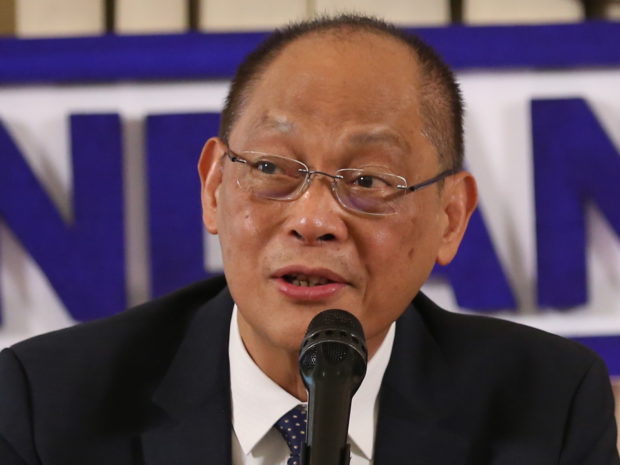BSP, regional central banks meet to assess emerging financial stability risks
MANILA, Philippines—The Bangko Sentral ng Pilipinas (BSP) is working with central banks around the world to guard against emerging threats to financial stability being brought to life by the COVID-19 pandemic, the BSP head said on Wednesday (April 28).
In a statement, BSP Governor Benjamin Diokno—who is co-chair of the Financial Stability Board’s Regional Consultative Group for Asia—said he recently convened a meeting among Asian jurisdictions to assess evolving threats that could hurt recovery efforts.
The meeting was structured as an open and informal discussion. Among the topics discussed was pressures created by the scars left by the COVID-19 crisis on corporate viability and debt servicing.
There was a lively discussion on the need to support markets today while remaining cognizant of possible unintended longer-term risks from support measures. Communicating systemic risks, as difficult as this task is, was also prominently discussed.
“If there is one word that aptly describes our discussions, it is ‘balance’,” Diokno said. “There is that balance sought between the needs of today versus tomorrow, between support versus viability, and between instilling transparency versus avoiding undue concern.”
The Regional Consultative Group for Asia is one of six consultative groups created by the Financial Stability Board in 2011. It is composed of 17 jurisdictions, eight of which are members of the Financial Stability Board which is based in Basel, Switzerland.
The other nine jurisdictions – Brunei Darussalam, Cambodia, Malaysia, New Zealand, Pakistan, Sri Lanka, Thailand, Vietnam and the Philippines as convenor – joined the meeting chaired by Diokno. The Reserve Bank of India, the other co-chair of the group, likewise participated in the meeting.
Diokno highlighted the difficult task of communicating systemic risks under the financial stability agenda, pointing out that effective preparation should begin when markets are calm, rather than after these risks materialize.
“The Regional Consultative Group for Asia used to have very active discussions during its periodic meetings but COVID took away this face-to-face opportunity,” Diokno said. “I thought that it would be useful to again listen and learn from our Asian partners as we all deal with the challenges caused by COVID.”
The BSP chief explained that holding the meeting among non-Financial Stability Board members of the Asian subgroup benefited the whole body because participants were able to understand the challenges faced by other emerging markets in the region and channel these into the broader discussions.
“The emerging story is that COVID is causing divergence within markets and across jurisdictions,” he said. “As co-chairs, it should be incumbent upon us to get a good feel of how our different members are in their own COVID recovery journey.”

